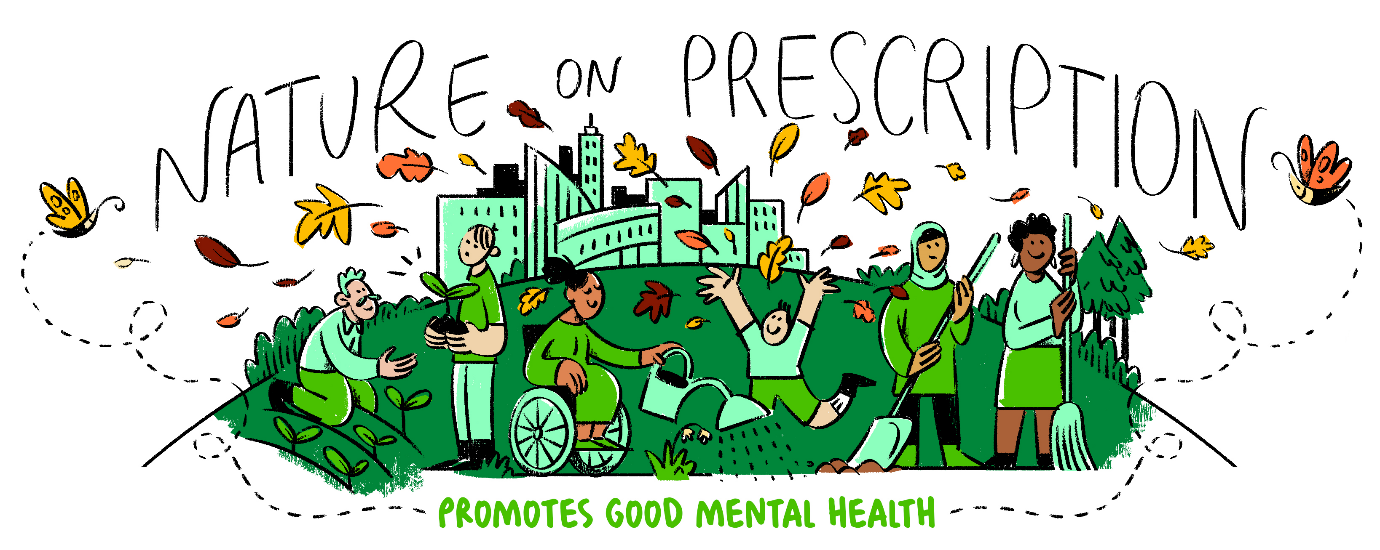In this series we talk to past PhD students about why they got into research, what an ARC PhD meant to them, and what happened next in their research careers.
We believe in creating opportunities for research training as an investment in the future of the research community and in our capacity to positively impact on health outcomes for patients and the public. Our studentships are linked to our research themes and priority areas and students receive expert supervision and guidance from our academic colleagues.
Here we meet PenARC Postdoctoral Research Fellow Dr Harriet Hunt, who, through the European Centre for the Environment and Human Health has just finished co-developing a handbook to help develop and implement a high-quality Nature on Prescription service.
Can you tell us about your PhD project? What led you to undertake it?
I took an irregular route to my PhD, which I’ve discovered is more common than it often appears. After completing a Dual Honours BSc in Psychology and Criminology at the University of Keele, I had various jobs making luxury play houses, working as an ornamental plasterer, with the NHS National Programme for IT, and then in local government. I knew that I wanted to work in research, so over two years, during evenings and weekends, I completed an MSc in Psychological Research Methods with the Open University. This led to a series of research positions at the Peninsula College of Medicine and Dentistry, and later the University of Exeter Medical School.
In the course of research I discovered the vital, under-appreciated and simple/complex world of medical tests and a PhD plan began to take shape. I have a long-standing interest in dementia and mental health, and was aware that tests for dementia could be improved – so aimed to investigate the diagnostic accuracy of brief cognitive assessments (such as the MMSE and GPCog) used as part of the diagnostic process for identifying dementia in general practice. After applying unsuccessfully for funding via (in order): an NIHR PhD Fellowship; the Alzheimer’s Society; and the Royal College of GPs Scientific Foundation; I found support from PenCLAHRC and began my PhD in 2014.
What are you doing now? Can you tell us about your current research?
I have just finished co-developing a handbook for providers of nature-based interventions that target common mental health conditions, and we’re very proud of it. The research, through the European Centre for the Environment and Human Health, is co-produced with charities, organisations and other stakeholders. We’ve produced a digital handbook, website and support materials that give practical guidance for users across a broad spectrum of experience. I’ve thoroughly enjoying working with this team, alongside interested groups, to help create a practical resource for people to use in delivering nature-based mental health programmes. I’m starting further work with the same team on a national programme to evaluate green social prescribing, and looking forward to it. I also take on contract research, chiefly in med tech, alongside my main academic work.

How did your PhD project affect your current research?
At the very beginning of my PhD project, I wanted to make sure that the people my research was about were at the heart of it. I gathered together a steering group of people with lived experience of dementia tests, GPs, old age psychiatrists, research ethicists, statisticians and test specialists to make sure that my research was relevant and made sense in the real world. The generosity and support from this group was one of the real highlights of my PhD journey and set me on my current path of practical, meaningful research with real world benefit.
How important was the participation of patients in your research?
My current research has benefited greatly from people’s willingness to make things better; a common theme in my professional experience. Research is often a complicated beast where ‘useful’ results aren’t guaranteed, but at the heart of it are people keen to improve the status quo – often motivated by the personal as much as the professional.
What happens next? How would you like your research career to develop? Perhaps you already know – tell us about it.
I’m keen to continue exploring what information people find useful for decision-making, versus what evidence is produced. The current Covid pandemic has highlighted stark challenges with how evidence is understood and communicated, as well as less tangible issues around public behaviour and messaging. I have a strong interest in improving mental health support and understanding, and am fortunate to be working in this area. I have no idea what happens next.
Would you recommend a research career? What piece of advice would you give to yourself if you were starting again or to anyone else considering a career in research?
If you are fed by curiosity and getting to grips with the oily underbelly of how things work, explore a job in research. I wouldn’t recommend a ‘research career’ as an aim in itself, as I don’t think such a thing exists. Working with dedicated enthusiasts, gaining privileged insights from service users, learning more than you ever thought possible about a topic and realising how much more there is to know; these can all provide peaks to outweigh the troughs. The key piece of advice I’d give to anyone considering working in this area is: do what you enjoy. Life is too short to be a hamster on someone else’s wheel.
***
